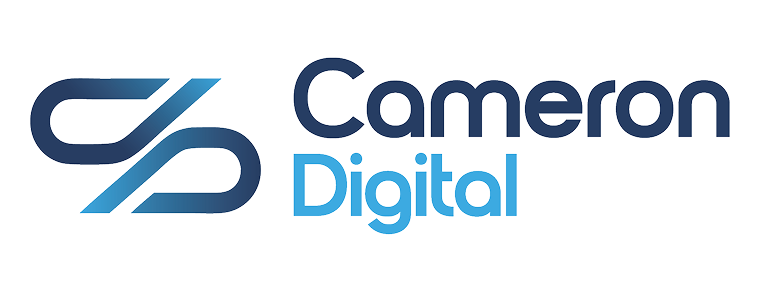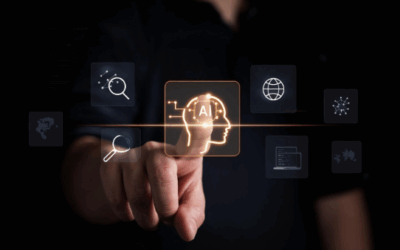Most paid ads waste money because they miss the right audience. If your PPC skills don't include sharp targeting strategies and smart ad optimization, your budget shrinks with little to show. This post breaks down paid media best practices that help you spot where to...
How AI is Revolutionizing PPC Campaign Optimization for Maximum ROI

Categories
You may also like…
How to Plan, Execute, and Optimize Your UX Projects for Real Results
Most UX projects stall before they deliver clear results. You've planned, but something slips between design and outcome. This post breaks down UX strategies into simple steps you can follow, with practical tips on project management in UX and client communication in...
Ethical SEO in the Age of AI: How to Avoid Black Hat Pitfalls
Black Hat SEO tricks used to fool search engines, but AI has made those shortcuts riskier than ever. If you want to keep your site safe and rankings steady, understanding the line between White Hat SEO and Black Hat SEO is key. This post breaks down SEO best practices...
In digital advertising, AI is rapidly transforming how marketers optimize PPC campaigns for maximum ROI. By leveraging AI in PPC, businesses can achieve more precise ad targeting, ensuring that their messages reach the most relevant audiences with unparalleled accuracy. As AI advertising tools automate complex tasks like budget management and performance analysis, they not only enhance efficiency but also empower marketers to focus on strategic PPC strategies. This shift allows for real-time adjustments and insights, enabling advertisers to maximize their returns while minimizing manual workload. Join us as we delve into the innovative ways AI is reshaping PPC campaign optimization, offering marketers a powerful ally in the quest for digital advertising success. For more information on AI in digital marketing, check out our guide for business owners to stay competitive.
The Rise of AI in PPC
Artificial Intelligence (AI) is revolutionizing the landscape of Pay-Per-Click (PPC) advertising, offering unprecedented opportunities for campaign optimization and efficiency. This section explores how AI is transforming campaign optimization and enhancing ad targeting in PPC strategies.
Transforming Campaign Optimization
AI is reshaping PPC campaign optimization by introducing advanced algorithms that analyze vast amounts of data in real-time. These systems can identify patterns and trends that human marketers might overlook, leading to more effective campaigns.
Machine learning models continuously adapt to changing market conditions, adjusting bids and ad placements to maximize performance. This dynamic approach ensures that campaigns remain competitive and cost-effective.
AI-powered tools can predict future performance based on historical data, allowing marketers to make proactive decisions. This predictive capability helps in allocating resources more efficiently and planning for long-term success.
By automating routine tasks, AI frees up marketers to focus on strategic planning and creative aspects of campaigns. This shift in focus can lead to more innovative and impactful PPC strategies.
Enhancing Ad Targeting with AI
AI significantly improves ad targeting by analyzing user behavior, preferences, and intent at a granular level. This precision targeting ensures that ads reach the most relevant audience, increasing the likelihood of conversions.
Natural Language Processing (NLP) enables AI to understand search queries more accurately, matching them with the most appropriate ads. This leads to higher quality scores and lower costs per click.
AI can dynamically segment audiences based on real-time data, creating micro-segments that allow for hyper-personalized ad experiences. This level of personalization can dramatically improve engagement rates and ROI.
Predictive analytics powered by AI can forecast which users are most likely to convert, allowing marketers to allocate budgets more effectively. This targeted approach maximizes the impact of advertising spend.
For more insights on leveraging AI in your PPC strategy, check out our guide on PPC brand monitoring tools.
Streamlining Budget Management

AI is revolutionizing budget management in PPC campaigns, offering sophisticated tools for automating strategies and maximizing return on investment (ROI). This section delves into how AI is transforming the way marketers allocate and manage their PPC budgets.
Automating PPC Strategies
AI-driven automation in PPC strategies is transforming the way campaigns are managed, offering unprecedented efficiency and precision. These systems can analyze vast amounts of data to make real-time decisions on bid adjustments, ad scheduling, and budget allocation.
Machine learning algorithms continuously optimize campaigns based on performance metrics, market trends, and user behavior. This dynamic approach ensures that PPC strategies remain agile and responsive to changing conditions.
Automated rules and scripts powered by AI can handle complex tasks such as bid management across multiple campaigns and ad groups. This level of automation not only saves time but also reduces the risk of human error in campaign management.
AI can also predict performance trends and suggest proactive adjustments to PPC strategies. This foresight allows marketers to stay ahead of the curve and capitalize on emerging opportunities.
For a detailed guide on implementing advanced PPC strategies, visit our step-by-step guide to competitor keyword gap analysis.
Maximizing ROI with AI
AI plays a crucial role in maximizing ROI for PPC campaigns by optimizing budget allocation and improving targeting precision. These systems can analyze historical performance data to identify the most profitable keywords, ad placements, and audience segments.
Advanced AI algorithms can predict the potential ROI of different budget scenarios, helping marketers make informed decisions about resource allocation. This predictive capability ensures that every dollar spent on PPC is invested in the most effective channels.
AI-powered tools can automatically adjust bids based on the likelihood of conversion, ensuring that higher bids are placed on searches with the highest potential for return. This dynamic bidding strategy maximizes the efficiency of ad spend.
By continuously learning from campaign performance, AI systems can refine targeting parameters and ad creative to improve conversion rates over time. This ongoing optimization leads to a steady increase in ROI as campaigns mature.
Elevating Performance Analysis

AI is transforming the landscape of performance analysis in PPC advertising, offering deeper insights and more efficient tools for campaign evaluation. This section explores how AI-powered tools are enhancing performance analysis and reducing manual workload in digital advertising.
AI Advertising Tools in Action
AI advertising tools are revolutionizing the way marketers analyze and optimize PPC campaigns. These sophisticated platforms can process vast amounts of data in real-time, providing actionable insights that were previously unattainable.
Machine learning algorithms can identify complex patterns and correlations in campaign data, uncovering opportunities for improvement that human analysts might miss. This depth of analysis leads to more informed decision-making and strategic planning.
AI-powered dashboards and reporting tools can automatically generate comprehensive performance reports, saving marketers hours of manual data compilation and analysis. These reports often include predictive elements, forecasting future performance based on current trends.
Natural Language Processing (NLP) capabilities allow marketers to interact with these tools using conversational queries, making complex data analysis more accessible and user-friendly.
Reducing Manual Workload in Digital Advertising
AI significantly reduces the manual workload associated with digital advertising, allowing marketers to focus on strategic tasks rather than routine data management. Automated data collection and processing eliminate the need for time-consuming manual reporting.
AI-driven anomaly detection can automatically flag unusual patterns or performance issues, alerting marketers to potential problems before they escalate. This proactive approach minimizes the need for constant manual monitoring.
Advanced AI systems can even suggest or implement optimizations automatically, such as adjusting bids, pausing underperforming ads, or reallocating budget. This level of automation streamlines campaign management and improves overall efficiency.
By handling repetitive tasks and data analysis, AI frees up marketers to focus on creative strategy, client relationships, and high-level campaign planning. This shift in focus can lead to more innovative and effective PPC campaigns.



